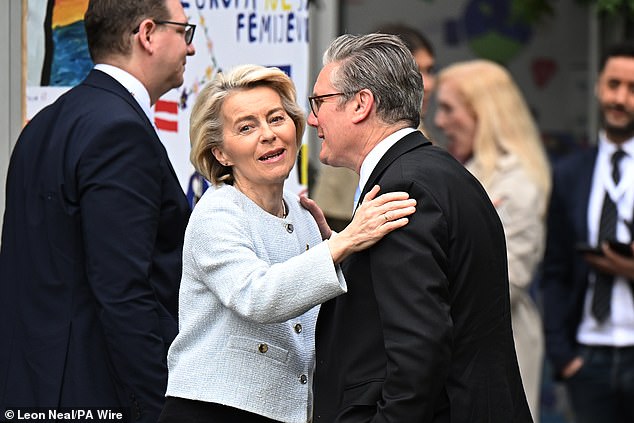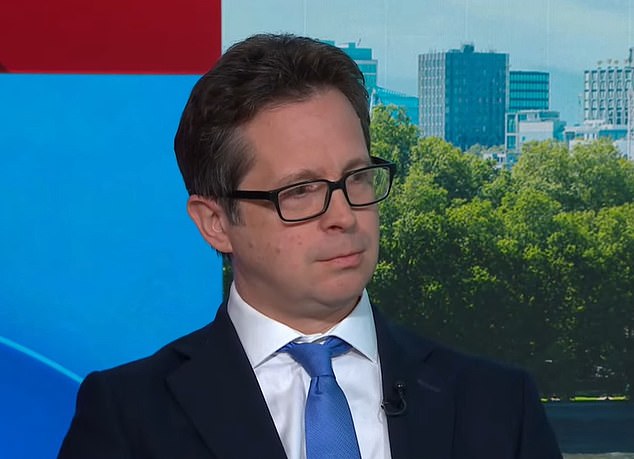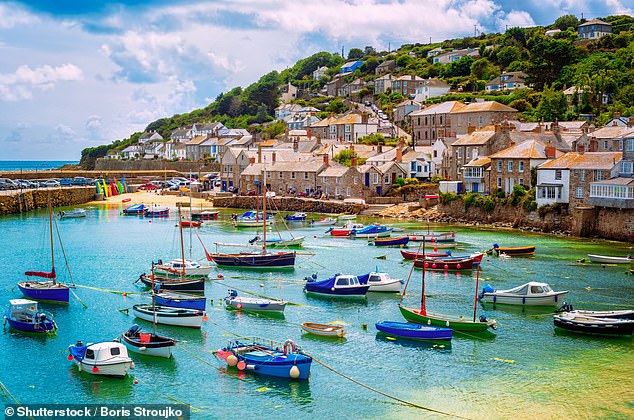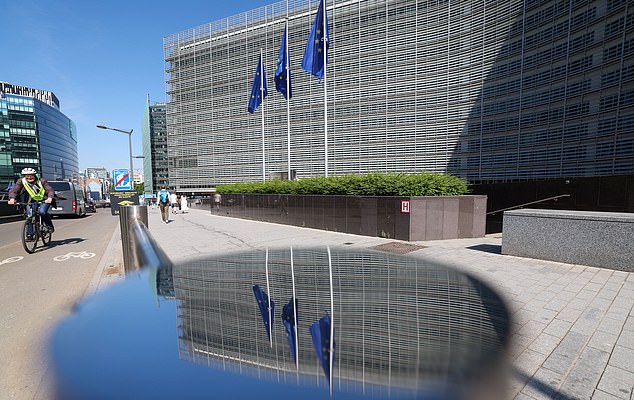Sir Keir Starmer was today accused of handing the EU ‘exactly what it wants’ as he prepares to sign a new post-Brexit deal aligning Britain more closely with Brussels.
Critics warned that the proposed reset to be signed at a ‘Surrender Summit’ in London tomorrow will open the country up to thousands of migrant workers and sell off fishing rights in our waters.
The UK would also be forced to swallow many Brussels rules and accept a role for the European Court of Justice as the two sides deepen trade and security links.
Nick Thomas-Symonds, the Cabinet Office minister in charge of negotiations, said the final detail of a deal are still being negotiated but used a round of TV appearances to say that the agreement would mean ‘lower household bills’ and ‘stronger borders’.
And he appeared to confirm reports that the deal will see the ban on UK holidaymakers using EU passport e-gates lifted, speeding up transit through airports on the continent.
But his Tory shadow, Alex Burghart, cited recent deals agreed with India and the US as a sign that it could be a failure.
He told Sky News’ Sunday Morning with Trevor Phillips: ‘You can you can sign bad deals any day of the week. And, the truth is that we have a worse deal with the US now than we had at the start of March. and the deal with India has come at a price on on immigration…
‘Anybody can walk into a negotiating room and say, ”I’ll tell you what, I’ll give you what you want. Can we have a deal?” and the fear is that that is exactly what’s going to happen with the EU summit on Monday.’

Sir Keir Starmer is preparing to sign an outline agreement for a ‘reset’ with the bloc that critics have branded a ‘ Brexit betrayal’.

Nick Thomas-Symonds, the Cabinet Office minister in charge of negotiations, said the final detail of a deal are still being negotiated but used a round of TV appearances to say that the agreement would mean ‘lower household bills’ and ‘stronger borders’.

But his Tory shadow, Alex Burghart, cited recent deals agreed with India and the US as a sign that it could be a failure.
He added: ‘When people hear about a youth mobility scheme, they think about an 18 year old coming over working at a bar.
‘But actually we may well be looking at a scheme which allows 30 year olds to come over and play access to the NHS on day one, to claim benefits on day one to bring their extended families.
‘You’re looking at a continent which currently has, youth unemployment at about 15 per cent. Some countries, like Romania, have youth unemployment about 26 per cent.
‘So there are obviously very considerable disadvantages to the UK at this deal is done in the wrong way.’
Mr Thomas-Symonds said the Government was ‘seeking to negotiate a deal for food products’ as part of a ‘successful deal’.
He also said the Government was pushing for measures to speed up the process for British holidaymakers going through passport control in the EU.
He said: ‘I would love to see you being able to go through the border more quickly in that way. That’s certainly something we’ve been pushing with the EU and I think that will be something that will be very helpful to British people.’
Any deal on a youth mobility scheme with Europe will have to be ‘smart and controlled’ and will be ‘absolutely consistent’ with the Government’s immigration policy, he added.
Sir Keir Starmer is preparing to sign an outline agreement for a ‘reset’ with the bloc that critics have branded a ‘Brexit betrayal’.
It is expected to include a youth mobility scheme – dubbed free movement ‘by the back door’ – and an agreement to allow EU trawlers to fish in British waters.

It is expected to include a youth mobility scheme – dubbed free movement ‘by the back door’ – and an agreement to allow EU trawlers to fish in British waters. (File)

The Tory leader was in Belgium on Friday to speak at the International Democracy Union (File image of the European Commission)
Brexiteers’ fears that the Prime Minister is preparing to surrender freedoms gained after the 2016 referendum deepened last night after No 10 told The Mail on Sunday that Sir Keir believed that the British people were ‘done’ with Brexit.
A Downing Street adviser said: ‘His view is people have had it with the Brexit wars. They’re done with all that. What they want is a relationship with Europe that benefits them. All they care about now is something that will put some extra money in their pockets’.
The agreement in principle, which is expected to be signed by European Commission chief Ursula von der Leyen and European Council president Antonio Costa at Lancaster House in London, will also include a defence and security pact that would allow British companies to win contracts from a €150 billion (£125 billion) EU weapons fund.
Firms such as BAE Systems could bid for contracts from the Security Action For Europe (Safe) fund, established in response to Russia’s invasion of Ukraine and fears that Donald Trump could ditch America’s Nato commitments.
However, a senior diplomatic source last night said that the French government were leading demands for the UK to pay Brussels for the privilege of being allowed access to the fund.
The source said: ‘The figures being discussed are in the hundreds of millions up to possible billions. It would inevitably trigger memories of the days when Britain forked out a fortune to the EU each year’.
The deal would also require Britain and the EU to ‘standardise’ mutual defence systems and ensure ‘greater interoperability’.
Last night Shadow Defence Secretary James Cartlidge said: ‘Labour’s Brexit betrayal is in full swing. Whenever they negotiate, Britain loses.’
And Reform UK leader Nigel Farage said: ‘We should not be putting our army under an EU flag, let alone then paying for the privilege’.
Mr Farage has called the youth mobility plan, ‘effectively be a back door to free movement of people that will be strongly opposed by Brexit voters’, while the Conservative leader, Kemi Badenoch has claimed it could amount to an ‘uncapped migration scheme’.
But Sir Keir has insisted that it would not amount to a return to pre-Brexit freedom of movement, pointing to reciprocal schemes that the UK already has with the likes of Australia.
Under such agreements, people between the ages of 18 and 35 are allowed to work in each other’s countries for two years.
They are subject to annual quotas, ranging from 100 visas for Andorra to 42,000 for Australia.
The PM told The Times: ‘We have a red line in our manifesto about freedom of movement, but youth mobility is not freedom of movement.
‘I think the British public are pretty pragmatic, that’s what we’re known for, which is why I think they will look forward not backwards’.
It has been calculated that 80 million Europeans would qualify for a British visa if a mobility scheme for under-35s is not capped.
Last night, Downing Street said that the deal would help UK firms ‘who face red tape and checks just to export to our nearest and biggest trading partner’; British supermarkets ‘who have to pass these costs on to consumers and reduce the availability of products on shelves‘; and British families ‘who face higher bills, queues on holiday and whose safety and security is harmed by a lack of cooperation between neighbouring countries facing the same global challenges’.
Sir Keir said: ‘In this time of great uncertainty and volatility, the UK will not respond by turning inwards, but by proudly taking our place on the world stage – strengthening our alliances and closing deals in the interests of British people’.












